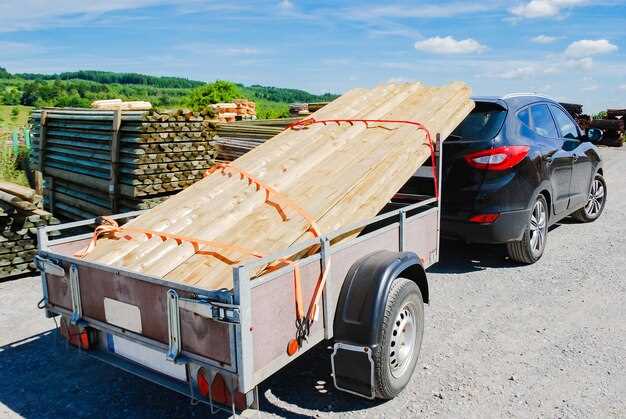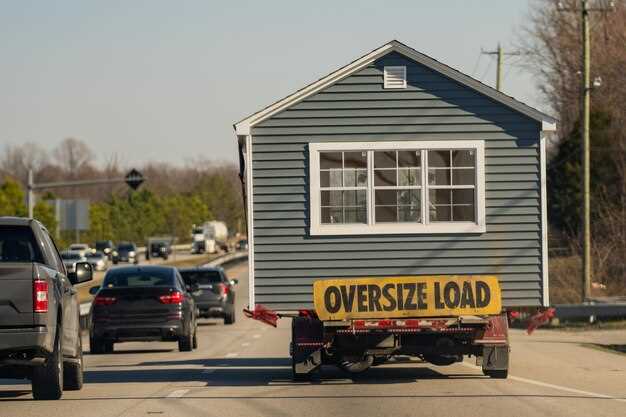
When the off-season arrives, it’s essential to consider the long-term care and storage of your trailer. Proper storage not only extends the life of your investment but also ensures that it is ready for use when the season returns. Knowing how to store your trailer correctly can save you time, money, and potential headaches down the road.
During the off-season, many trailer owners underestimate the importance of selecting the right storage solutions. By implementing smart storage strategies, you can protect your trailer from harsh weather conditions and other environmental factors. This not only helps maintain its condition but also enhances its overall value. In this guide, we will explore various approaches to long-term trailer storage that can make your off-season as hassle-free as possible.
From choosing a suitable location to employing protective measures, understanding how to store your trailer efficiently will ensure that your investment remains in excellent shape. Get ready to discover practical tips and best practices tailored to trailer owners looking for reliable off-season storage solutions.
Choosing the Right Location for Long-Term Trailer Storage
Selecting an appropriate location for long-term trailer storage is crucial for maintaining your trailer’s condition and ensuring easy access when needed. First, consider the environment. A covered or indoor storage facility protects your trailer from harsh weather conditions, such as rain, snow, and UV exposure, which can cause damage over time.
Proximity is another key factor. Opt for a storage space that is convenient to your home or regularly visited areas. This accessibility reduces your travel time when you want to retrieve or check on your trailer, making it easier to plan trips and maintenance tasks.
Safety should not be overlooked. Investigate the security measures of potential storage locations. Fenced areas, surveillance cameras, and gated access enhance the safety of your trailer and prevent theft or vandalism. Researching the area’s crime rate can also provide insight into the safety of the storage location.
Additionally, consider the terrain. A level surface helps prevent damage to your trailer’s axles and prolongs its lifespan. Avoid areas prone to flooding or excessive moisture, as these can lead to mold or structural issues over time.
Lastly, check for any local regulations or restrictions concerning trailer storage. Some areas have zoning laws that dictate where trailers can be stored. Ensuring compliance with these rules can save you from potential fines or enforcement actions in the future.
Preparing Your Trailer for Extended Periods of Inactivity

Proper preparation of your trailer for long-term off-season storage is essential to ensure it remains in excellent condition and is ready for use when the season returns. Begin by thoroughly cleaning the interior and exterior of the trailer. Remove all food items, trash, and personal belongings to prevent pest infestations and unpleasant odors.
Next, inspect the trailer for any signs of damage. Check for leaks in the roof, walls, and seals, as well as any corrosion on metal components. Repair any issues to avoid more significant problems during the off-season.
Before storing, make sure to service major systems such as the plumbing, electrical, and heating. Winterize your plumbing system by draining all water lines, adding antifreeze to the tanks and lines, and ensuring the water heater is emptied. For electrical components, disconnect the battery and store it in a cool, dry place, or connect it to a trickle charger to maintain its charge.
Tires also require special attention. Inflate them to the recommended pressure and consider placing the trailer on jack stands to prevent flat spots. If your trailer will be exposed to the elements, using tire covers can help protect them from UV damage.
Finally, cover your trailer with a breathable cover designed for long-term storage. This will protect it from dust, debris, and moisture while allowing any trapped moisture to escape, reducing the risk of mold and mildew growth. By following these steps, you can ensure that your trailer is well-prepared for an extended period of inactivity, making it ready for your next adventure.
Maintenance Tips During Off-Season Storage to Preserve Trailer Condition

Proper maintenance during off-season storage is crucial for preserving your trailer’s condition, especially for long-term storage. Start by cleaning your trailer thoroughly. Remove any dirt, debris, and organic materials, as these can lead to mold and corrosion over time. Pay special attention to your tires; inflate them to the recommended pressure and consider using tire covers to protect them from UV damage.
Next, inspect and treat the exterior. Apply a high-quality wax or sealant to protect paint and surfaces from the elements. Ensure that all seals and weather stripping around doors and windows are intact to prevent moisture intrusion. Cracks should be repaired promptly to avoid water damage during storage.
Drain all water systems completely, including the water heater, and add antifreeze to plumbing lines to prevent freezing and cracking during colder months. This step is essential for preserving the integrity of your trailer’s water system.
For the interior, ensure that the space is dry and free from pests. Place moisture absorbers or dehumidifiers inside to minimize humidity levels, which can help prevent mold growth. Additionally, cover furniture and appliances with breathable fabric to protect against dust while allowing air circulation.
Finally, consider using a storage cover specifically designed for trailers. This will shield your trailer from UV rays, rain, and other environmental factors during long-term storage. Regular checks during the off-season can help identify potential issues before they escalate, ensuring that your trailer remains in excellent condition for your next adventure.





